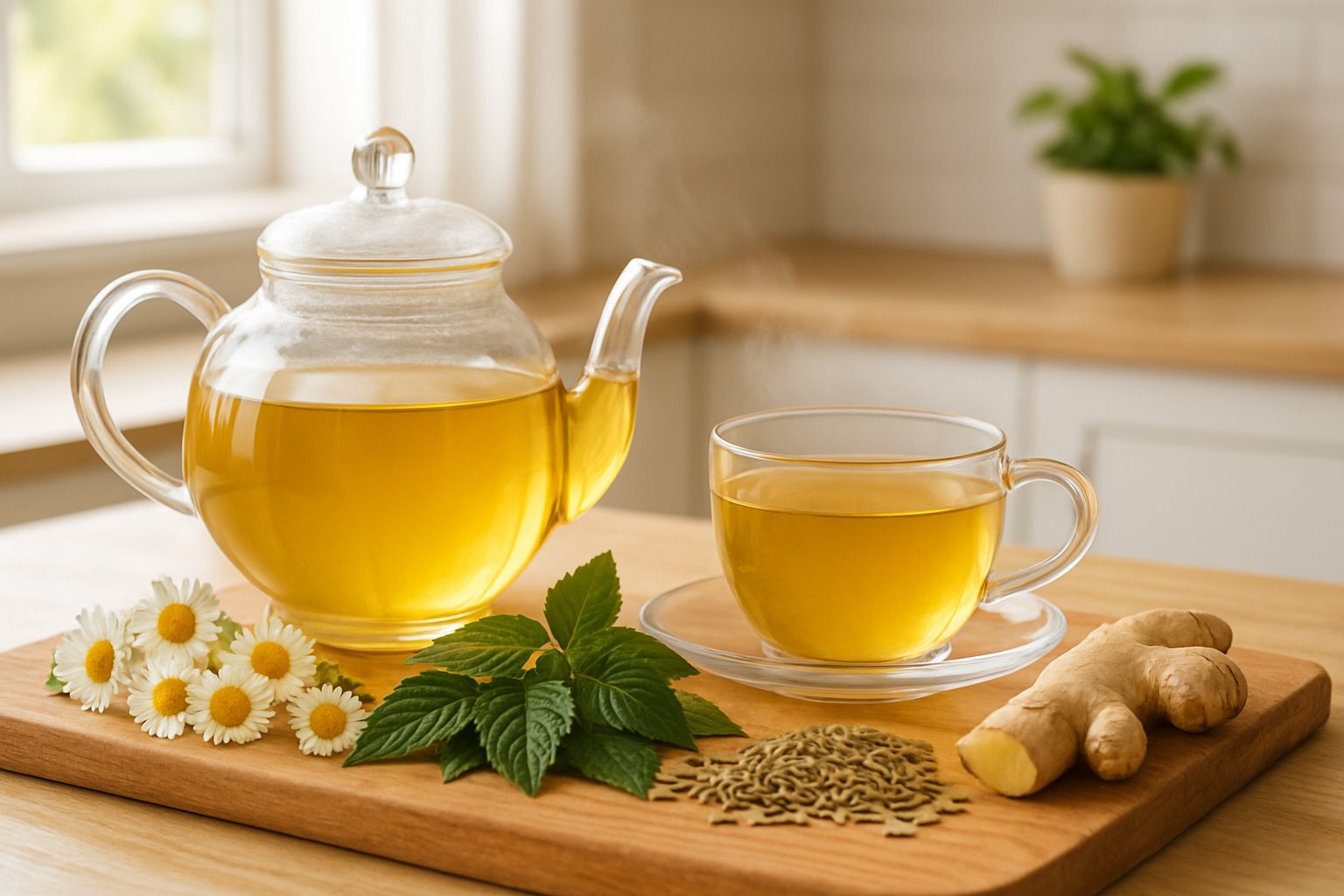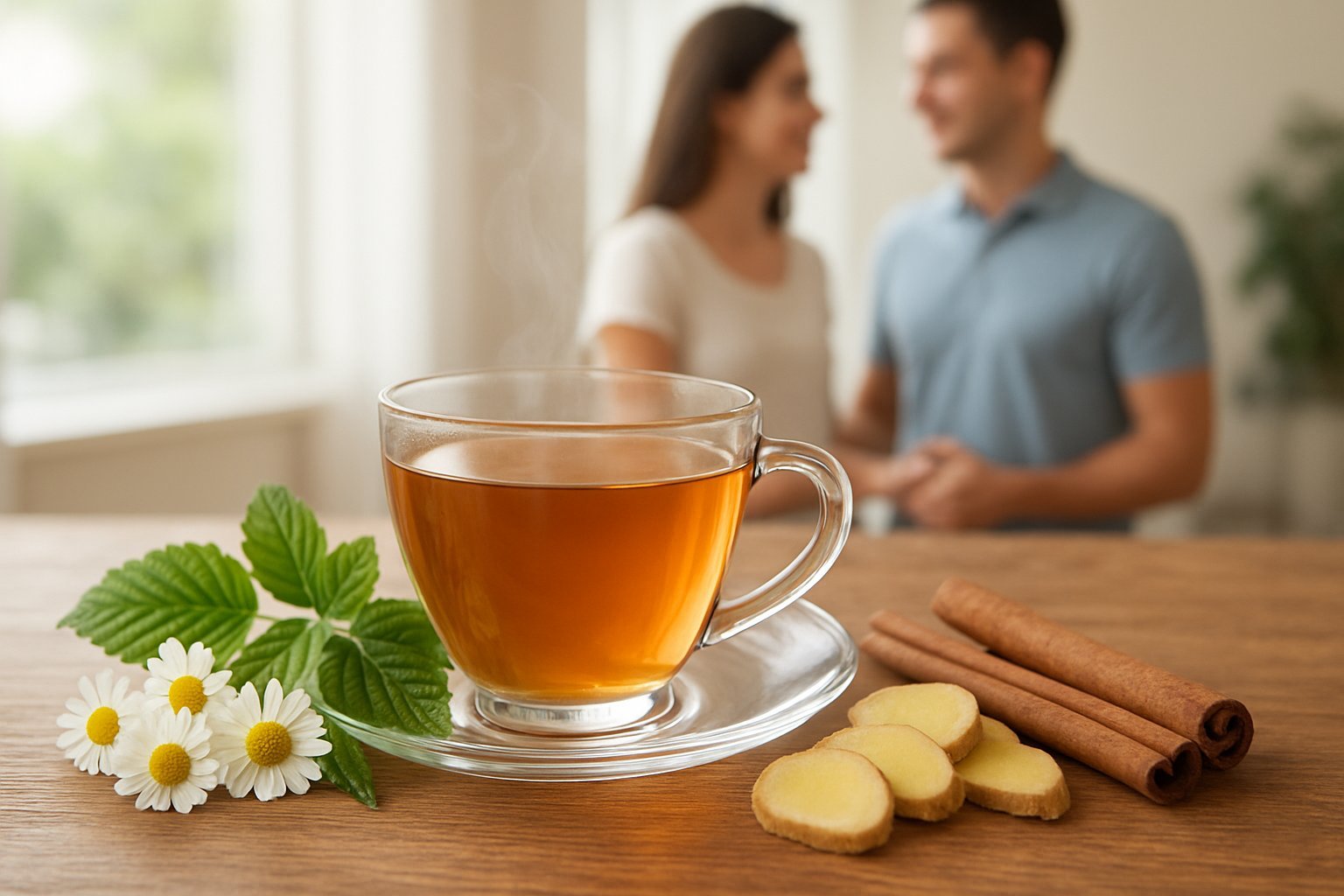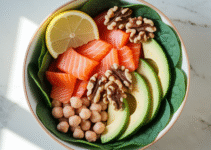If you are trying to conceive, choosing the right fertility tea can support your reproductive health naturally. The best fertility teas include ingredients like red raspberry leaf, ashwagandha, and lady’s mantle, which help balance hormones, improve uterine health, and reduce stress—key factors that may improve your chances of getting pregnant.
These herbal teas provide essential nutrients and can create a more favorable environment for conception.

Fertility teas are often used alongside medical advice to complement your fertility journey. Drinking these teas consistently and communicating with your healthcare provider ensures you use them safely and effectively to support your body.
Understanding the benefits and choosing the right herbs can help you feel more in control as you work toward pregnancy.
What Is Fertility Tea and How Does It Support Conception?

Fertility tea is made from specific herbs that aim to support your body during the reproductive cycle. These teas work by addressing hormone balance, uterine health, and overall reproductive wellness.
Drinking fertility tea can help prepare your body for conception by targeting common fertility challenges.
Overview of Fertility Teas
Fertility teas are herbal blends designed to support your reproductive system. They usually include herbs like vitex, red raspberry leaf, nettle leaf, and lady’s mantle.
These herbs have been used for generations to balance hormones and improve menstrual health. Most fertility teas come in loose-leaf or tea bag form.
They provide nutrients like vitamins and antioxidants to support your body through the menstrual cycle. Drinking fertility tea regularly helps create better conditions for conception, but it does not guarantee pregnancy. Same goes for fertility boosting foods.
Traditional and Modern Uses for Fertility
Herbal teas have been used traditionally to promote fertility and calm reproductive issues. Women around the world have used herbs to reduce menstrual pain, support ovulation, and strengthen the uterus.
Today, modern formulas combine traditional knowledge with current research. Some fertility teas target hormone imbalances, while others focus on improving uterine lining thickness or cervical mucus.
Many women use these teas alongside tracking ovulation and fertility apps for better timing.
Key Benefits for Reproductive Health
Fertility tea supports your reproductive health in several key ways. It helps balance hormone levels, which is often a cause of infertility.
Certain herbs, like vitex, may regulate menstrual cycles and improve ovulation. Other ingredients, like red raspberry leaf, help tone and nourish the uterus.
Nettle leaf provides iron and antioxidants, which can support your overall health during menstruation. These combined effects can improve your body’s readiness for pregnancy.
Most Effective Fertility Teas for Getting Pregnant
Certain herbal teas are known for supporting reproductive health through their nutrients and effects on hormone balance. These teas can help prepare your body by improving uterine health, providing key vitamins, and regulating menstrual cycles.
Red Raspberry Leaf Tea
Red raspberry leaf tea is highly valued for its role in strengthening and toning the uterus. It contains essential nutrients such as calcium, iron, and B vitamins, which support uterine health.
This tea helps prepare your uterus for pregnancy by toning its walls and promoting a healthy environment for embryo implantation. Additionally, red raspberry leaf tea may help regulate your menstrual cycle.
By improving uterine tone, it also lowers the risk of miscarriage. If you want to support your fertility naturally, this tea can be a beneficial daily supplement during your fertility window.
Nettle Leaf Tea
Nettle leaf tea is rich in vitamins and minerals, especially iron and vitamin C, which are important for reproductive health. The iron supports you if you have heavy periods, preventing anemia that could affect fertility.
This tea enhances blood flow and nourishes your uterus, helping your body prepare for conception. Vitamin C helps your immune system and aids iron absorption, making nettle leaf tea a strong choice to support overall fertility.
Safety, Dosage, and Expert Recommendations
When using fertility teas, it is important to pay attention to how much you drink and be aware of any possible health risks.
Understanding safe dosages and knowing when to seek medical advice can help you use these teas without harm.
Recommended Dosages and Best Practices
Start with a small amount of fertility tea, such as one cup per day, to see how your body reacts.
If you tolerate it well, you can gradually increase to two or three cups daily.
Some herbs, like red raspberry leaf, are generally safe to drink throughout your menstrual cycle.
Other herbs, such as chaste tree berry, may be best used only during certain phases, like after ovulation, to help support hormone balance.
Always follow the instructions on the product label.
Avoid drinking large amounts, as high doses of herbs can cause unwanted side effects.
It is best to combine fertility teas with a healthy diet and lifestyle for overall reproductive support.
Potential Side Effects and Interactions
Fertility teas may cause mild side effects, such as stomach upset or allergic reactions, especially if you are new to herbal products.
Some herbs can affect your hormone levels, so pay attention to symptoms like mood changes or irregular cycles.
If you take medications or have chronic health conditions, certain herbs in fertility teas might interact with your treatments.
For example, chaste tree berry can interfere with hormone medications or birth control.
If you are pregnant, avoid these teas unless your doctor says it is safe, as some herbs can cause uterine contractions.
Stop using the tea and consult your healthcare provider if you feel unwell or notice unusual symptoms.
When to Consult a Healthcare Professional
Talk to your doctor before starting fertility tea, especially if you have medical conditions or take prescription medications.
This will help ensure that the herbs do not interfere with your current treatments.
Consult a healthcare professional if you experience severe cramps, allergic reactions, or significant changes in your menstrual cycle.
Seek advice if you plan to use fertility teas alongside fertility treatments or hormone therapy.
Your doctor or a qualified herbalist can guide you on the right dosage and timing for your needs.
Frequently Asked Questions
Fertility teas often contain herbs that support reproductive health.
Knowing which teas are recommended, when to drink them, and understanding possible risks can help you use them safely.
What are the top-rated fertility teas for enhancing female fertility?
Some of the best fertility teas include Pink Stork Fertility Tea, Traditional Medicinals Organic Fertility Tea, and Earth Mama Organic Fertility Tea.
These blends often contain raspberry leaf, nettle, and red clover, which are known to support hormone balance and menstrual health.
What are the potential side effects associated with consuming fertility teas?
You may notice allergic reactions such as skin rashes or stomach upset from certain herbs.
Some ingredients may affect hormone levels if taken in large amounts, so it is important to drink these teas in moderation and talk to your healthcare provider.
Are there specific teas that should be avoided when trying to conceive?
Avoid teas with high levels of caffeine or those containing unknown herbal blends.
Some herbs may not be safe during conception or pregnancy, so always check the ingredients and seek medical advice before starting any new fertility tea.
How does fertility tea support reproductive health in men?
Some fertility teas include herbs that may help improve nutrient levels and hormone balance in men.
Certain blends are designed to support reproductive function, which can help improve sperm quality and fertility.
What is the optimal time to consume fertility tea for increased chances of conception?
Drinking one to two cups daily is common.
You can begin using fertility tea several weeks before trying to conceive to help support hormone balance and reproductive health.
Consistency is important for any potential benefits.
Can fertility tea be used during ovulation to improve the likelihood of getting pregnant?
Yes, fertility teas can be included in your daily routine, even during ovulation. These teas may help regulate your menstrual cycle.
Some ingredients in fertility teas are believed to support uterine health. This could potentially make it easier for you to conceive during your ovulation days.
Remember, fertility teas should be used alongside other healthy habits and not as your only approach to improving fertility.

